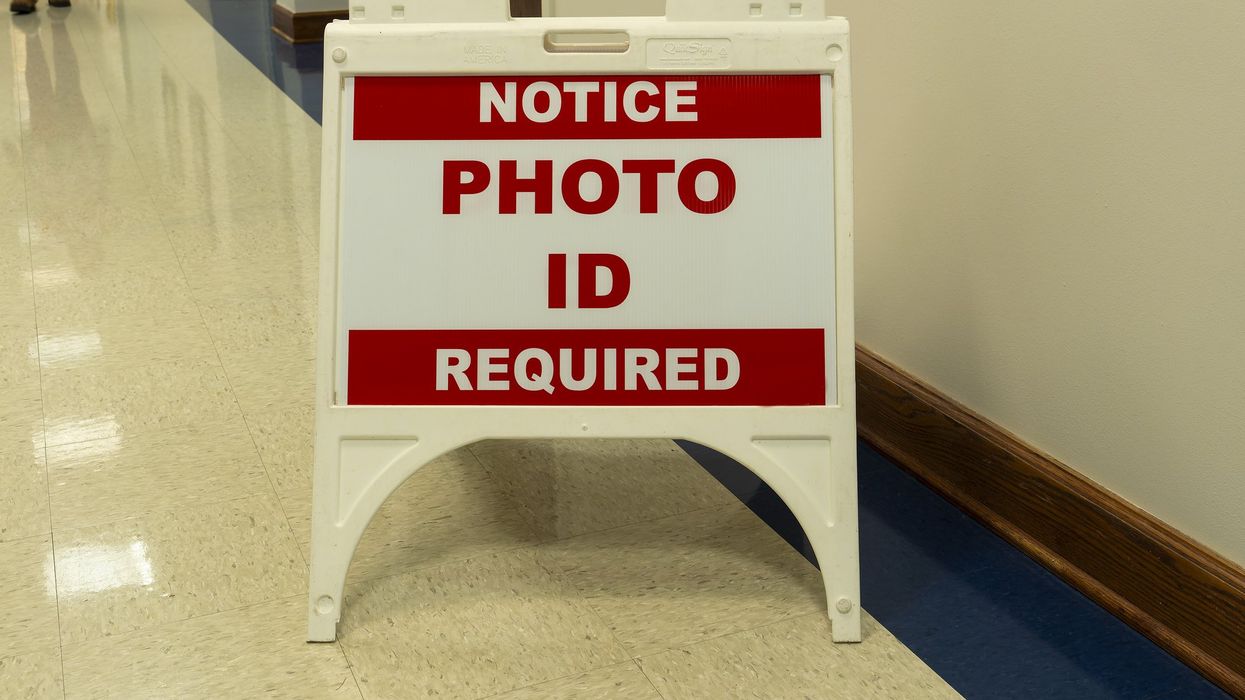
Julio Tamayo via iStock/Getty Images

Since 2020, 30 state legislatures have passed 225 bills that secure ballots, increase process accountability, and provide transparency to the American people.
As Democrats gather in Chicago for their convention, they will deliver soaring speeches, engage in over-the-top rhetoric, and prompt media pundits to peddle hot takes and outlandish predictions.
Amidst the endless war of words, the most important story may be the one no one is discussing: State election laws have changed — for the better.
None of these reforms matter if there are no criminal consequences for bad actors who violate election laws.
Lawmakers across the country answered the call of voters to protect their ballots. Legislators from Tallahassee, Atlanta, and Des Moines to Jefferson City and Columbus took action to protect democracy at the ballot box. In committee rooms, at legislative hearings, in offices and chambers, they crafted strong election integrity bills. And despite an overwhelming media campaign of threats and dishonest coverage, they put Americans first.
Since 2020, 30 state legislatures have passed 225 bills that secure ballots, increase process accountability, and provide transparency to the American people. It’s worth looking at what exactly they’ve accomplished.
First, state lawmakers decided it was common sense to stop billionaires from selectively handing out cash to election officials whose job it is to run elections impartially.
In the past four years, 28 states have banned one of the worst abuses of the 2020 election — the private funding of public election administration. Facebook’s Mark Zuckerberg “donated” more than $400 million to election offices across the country. Labeled as COVID relief grants and funneled through a nonprofit organization, this money, known as “Zuckerbucks,” allowed a private organization to not only fund public election operations but also fund them on a highly partisan basis.
Take Georgia, for example, where election offices were awarded $45 million in Zuckerbucks during the 2020 cycle. The money was spent predominantly on get-out-the-vote efforts in strategic districts. As a result, 75% of the counties that received grants shifted significantly leftward. Georgia lawmakers were the first to ban this tactic — and they came back again in 2023 to close a loophole when a government official in DeKalb County took another $2 million in violation of the ban.
In Wisconsin and Louisiana, where Democratic governors twice vetoed anti-Zuckerbucks bills, state lawmakers strategically passed legislation that put bans on the ballot. Voters in both states overwhelmingly approved the laws, which did not require the governors’ signatures and are now in effect.
Second, state legislators recognized the common sense in securing the absentee voting process — determining that it should not be easier to get an absentee ballot through the mail than it is to receive one in person on Election Day.
Since 2020, eight state legislatures have passed bills to require identification, such as a driver’s license number, on absentee ballots. Absentee voting is inherently more vulnerable than traditional in-person Election Day voting, and identification helps to secure these ballots cast by mail.
Lawmakers in states like Ohio, Georgia, Missouri, and South Carolina all faced aggressive scrutiny from the media for passing voter identification legislation. Yet bill sponsors, committee chairmen, and leadership didn’t back down. Ultimately, the voter identification bills that have been challenged have withstood court scrutiny and will be in place to secure absentee votes in November.
Third, state lawmakers passed common-sense reforms to protect vulnerable voters — like the elderly — from ballot harvesting tactics.
In 2020, partisan special-interest groups routinely gathered absentee ballots from voters with no delivery safeguards. Voters had no way of knowing whether their ballots were tampered with or even delivered at all. Lawmakers correctly decided that political operatives, with a stake in election outcomes, should not be handling ballots.
Ten states have recently enacted reforms to stop ballot harvesting practices by narrowly defining who may return an absentee ballot on the voter’s behalf. Florida, Iowa, Ohio, and Texas passed laws that allow specific people, such as a family or household member or designated caretaker, to return a ballot for somebody else.
Of course, none of these reforms matter if there are no criminal consequences for bad actors who violate election laws. State lawmakers in four states enacted reforms to investigate and prosecute nefarious behavior and hold election violators accountable.
In Florida, legislators established a dedicated Office of Election Crimes and Security. This investigative office has trained law enforcement officials with election expertise to review complaints, oversee a public fraud hotline, and conduct investigations. Since the office was created, officials have received more than 2,000 complaints and initiated over 1,000 independent investigations.
These changes represent just a few of the accomplishments that state lawmakers fought hard to achieve. While much more work remains on election integrity, these efforts will lead to safer, more secure elections — exactly what voters demanded.
State lawmakers put Americans first. And it’s their work — not the words of national political parties — that might just determine the outcome in November.
Madeline Malisa